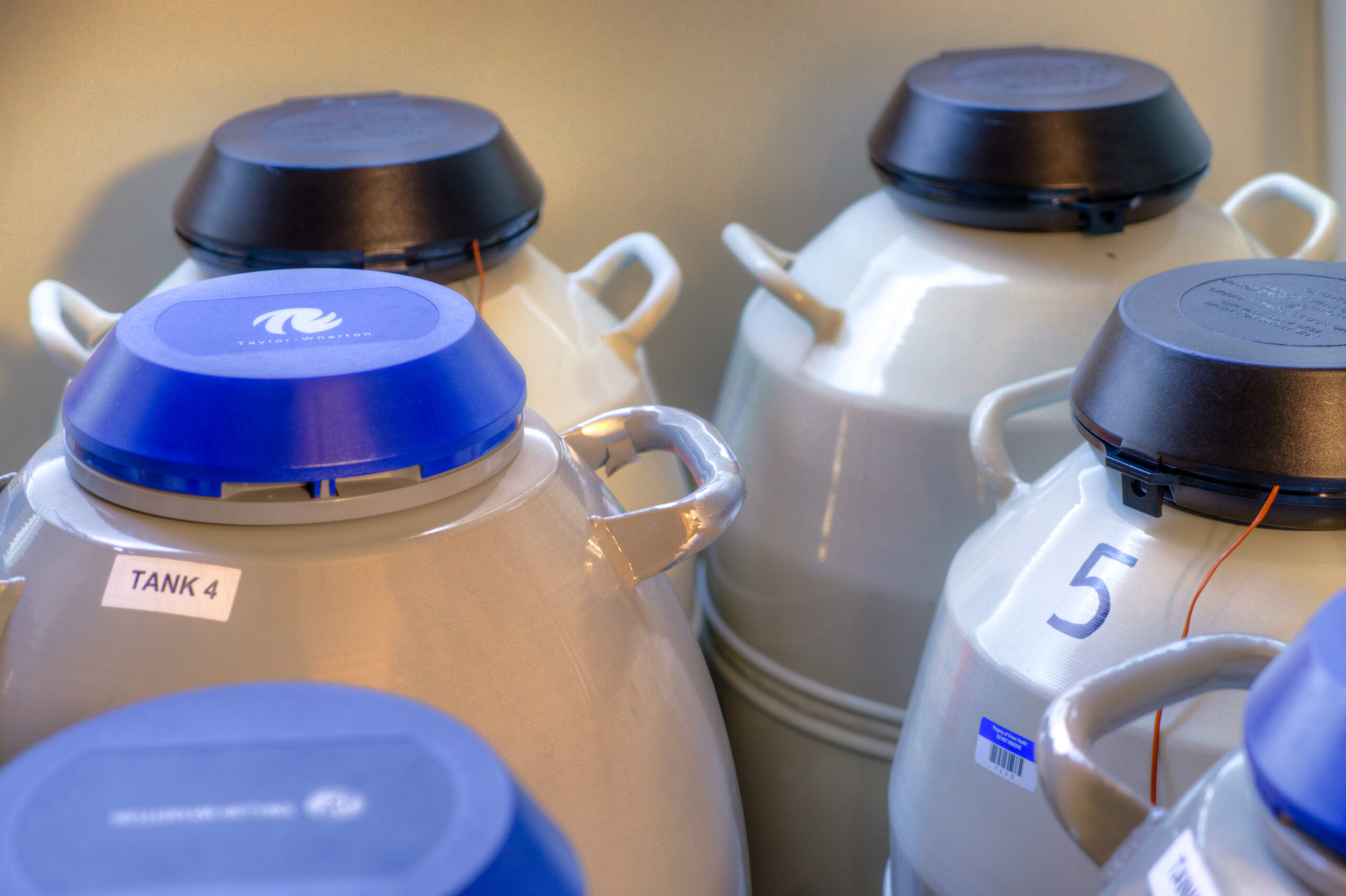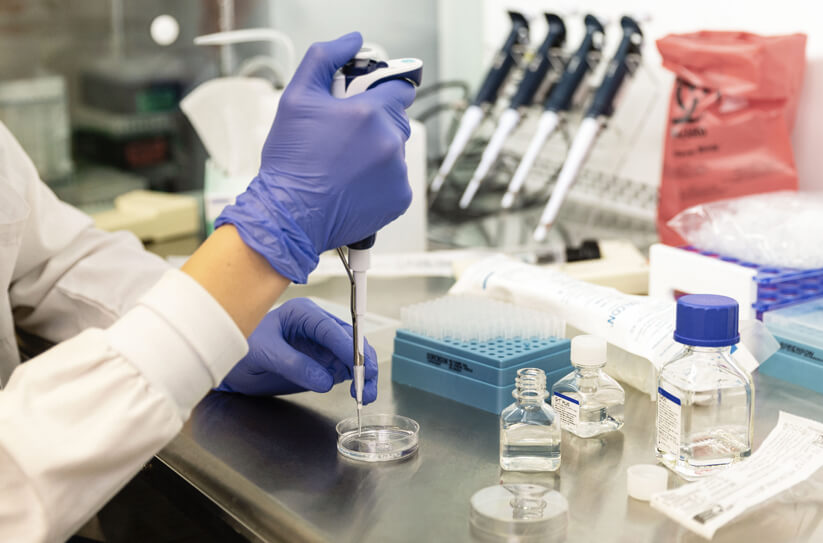
Discover what's possible with IVF
In vitro fertilization (IVF) offers a path forward, tailored to your unique journey in building the family of your dreams.


Is IVF right for me?
IVF can be a helpful option to support family building in many different circumstances.
1 in 6 facing infertility
IVF can improve chances of conception for male and/or female-factor infertility.
Recurrent pregnancy loss or multiple miscarriages
Personalized protocols and preimplantation genetic testing (PGT-A) help select healthy embryos, improving pregnancy success rates.
LGBTQIA+ family-building or single parent by choice
IVF with donor eggs, donor sperm, and/or a gestational carrier provides LGBTQIA+ family-building options that can include a genetic link to your child.
Genetic concerns
IVF with preimplantation genetic testing for monogenic disorders (PGT-M) helps to prevent passing certain hereditary diseases to your child.
Failed prior fertility treatments
IVF has the highest success rates compared to other fertility treatments, making it a promising next step when earlier methods haven’t yet worked.
How much does IVF cost?
Transparency matters when planning your fertility journey. That’s why we provide an approximate range of per-cycle costs – so you can better understand what to expect. When you become a patient, a dedicated financial counselor will walk you through insurance coverage, self-pay, and financing options, so you can focus on building your family.
The average cost of an IVF cycle is $15,000–$27,000*, including bloodwork, monitoring, egg retrieval, fertilization, embryo culture, cryopreservation, biopsy, PGT-A testing, and frozen embryo transfer. Medications, anesthesia, testing, and storage are not included.
*Range represents the average; Prices subject to market.

How much does IVF cost?
Transparency matters when planning your fertility journey. That’s why we provide an approximate range of per-cycle costs – so you can better understand what to expect. When you become a patient, a dedicated financial counselor will walk you through insurance coverage, self-pay, and financing options, so you can focus on building your family.
The average cost of an IVF cycle is $15,000–$27,000*, including bloodwork, monitoring, egg retrieval, fertilization, embryo culture, cryopreservation, biopsy, PGT-A testing, and frozen embryo transfer. Medications, anesthesia, testing, and storage are not included.
*Range represents the average; Prices subject to market.
Fertility care within reach
Through CCRM’s relationship with Future Family, you can bundle clinic procedures, lab work, medications, storage, and more into one simple monthly payment — with a clear, predictable cost that fits your lifestyle. CCRM patient benefits include flexible financing options, financial coaching, and 0% interest for up to 12 months for eligible patients.
5 steps in an IVF cycle
Our team is here to guide you through the IVF process with personalized, expert care.

Ovarian stimulation
Daily hormone injections encourage egg growth, carefully monitored through bloodwork and ultrasound to ensure your medications are working safely and effectively.

Egg retrieval
A fertility doctor will collect your mature eggs during this outpatient procedure performed under light sedation.

Fertilization
Sperm is combined with eggs to encourage fertilization of as many eggs as possible. For some patients, a single sperm is injected into each egg through a procedure called ICSI (intracytoplasmic sperm injection).

Embryo culture
Embryologists keep close watch to see which fertilized eggs turn into blastocysts, the most advanced stage for pre-implantation embryos that develops 5, 6, or 7 days after fertilization.
Genetic testing (optional)
Preimplantation genetic testing (PGT) tests embryos for chromosomal abnormalities and/or hereditary conditions.

Embryo freezing (Cryopreservation)
Embryos that you aren’t transferring right away are frozen using advanced vitrification technology and safely stored indefinitely until you’re ready to use them.

Does IVF work?
In vitro fertilization is the most effective form of assisted reproductive technology (ART). Your chances of success, or a live birth, depend on a few factors, including your age, your number of embryos, your reproductive history, and why you are seeking fertility treatment in the first place.
IVF services at CCRM
IVF FAQs
What is IVF?
In vitro fertilization (IVF) is a method of assisted reproduction in which sperm and eggs are combined in a lab to create embryos. An embryo is then transferred back into the uterus to achieve pregnancy.
Who needs IVF treatment?
IVF is a widely used fertility treatment that helps many people build their families. It can be an option for the 1 in 6 facing infertility, those with recurrent pregnancy loss or multiple miscarriages and/or failed prior fertility treatments, LGBTQIA+ individuals or couples, single parents by choice, and those with genetic concerns who want to avoid passing a hereditary disease to their children.
How much does IVF typically cost?
How much does IVF typically cost?
An average cycle of IVF costs between $15,000 and $27,000, including bloodwork, monitoring, egg retrieval, sperm preparation, fertilization and embryo culture, and cryopreservation. Your exact cost will vary depending on your treatment plan.
How effective is IVF treatment?
IVF is the most effective form of assisted reproductive technology (ART). Your chances of success, or a live birth, depend on a few factors, including your age, the number and quality of embryos, your reproductive history, and the underlying reason for seeking treatment. A fertility specialist can help you better understand your individual chances and what to expect.
How long does in vitro fertilization take?
One cycle of in vitro fertilization takes about 6-8 weeks. This includes your initial consultation and fertility testing, ovarian stimulation, egg retrieval, fertilization/embryo culture, and the frozen embryo transfer. However, the IVF timeframe can vary depending on your protocol and medical needs.
Does insurance cover IVF?
Coverage for fertility treatment varies by insurance plan, and requirements for employers to provide coverage vary by state. At CCRM, we try to make fertility care affordable. Your financial counselor will walk you through your options, including any available benefits, out-of-pocket costs, authorizations or deductibles that may be required, and payment timelines.
How does IVF differ from IUI?
The biggest difference between IUI and IVF is that IUI is a low-tech procedure in which sperm is inserted via catheter into the uterine cavity, so fertilization takes place inside the body. With IVF, fertilization occurs in a lab, where eggs and sperm are combined under controlled conditions to create embryos.

Start your fertility journey
Connect with one of our experienced fertility specialists to explore your options. We’re here to guide and support you every step of the way.




